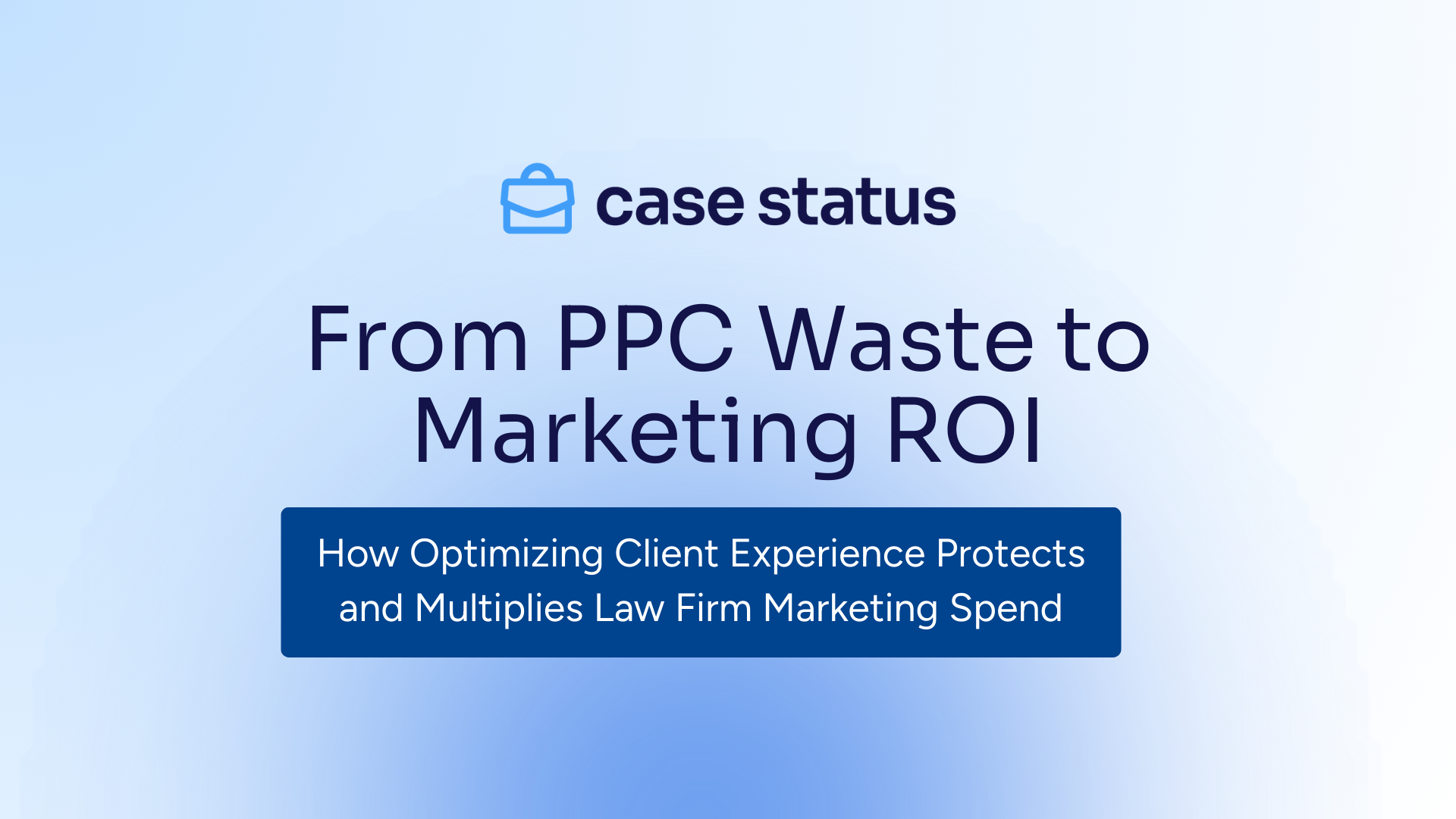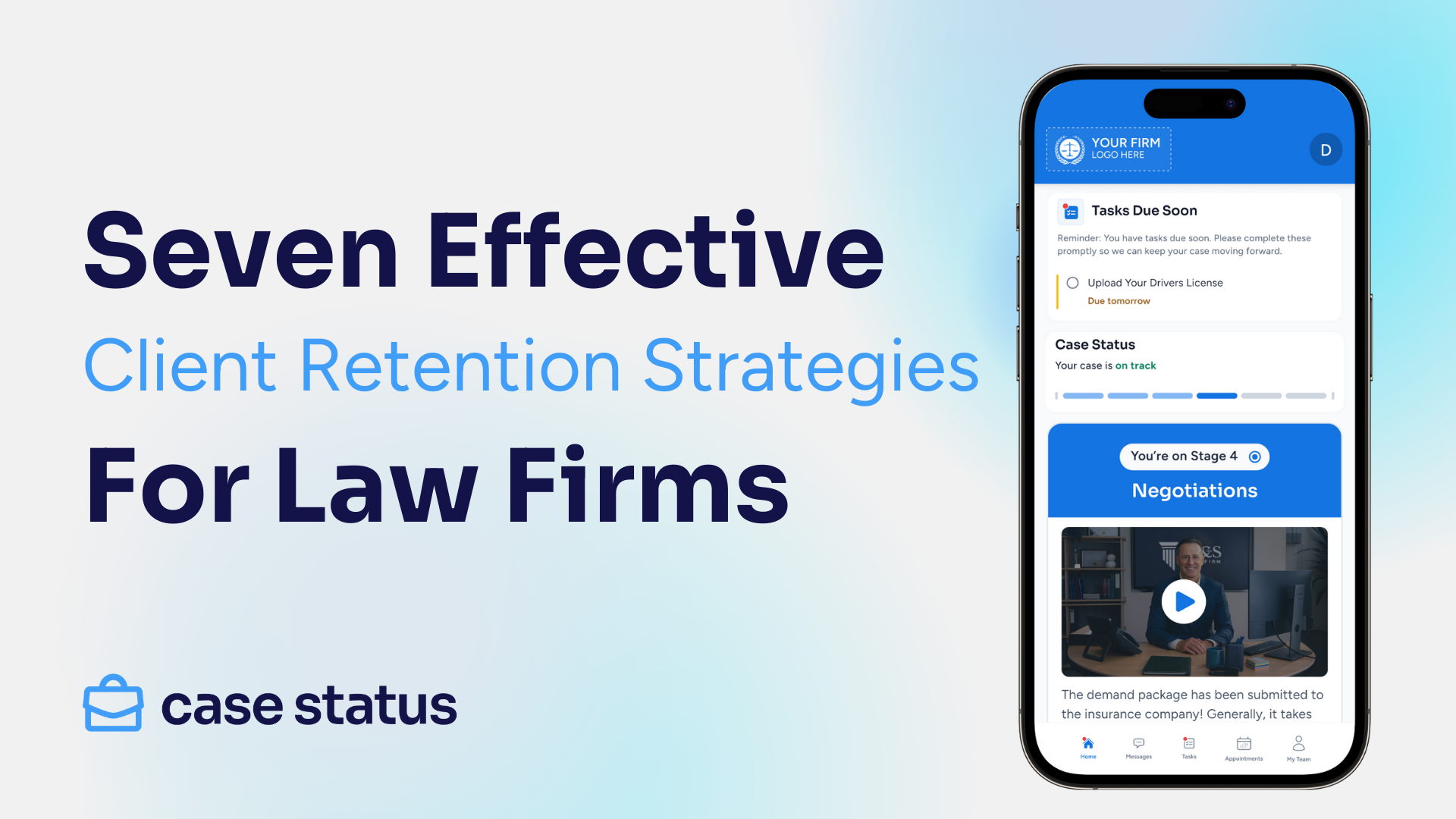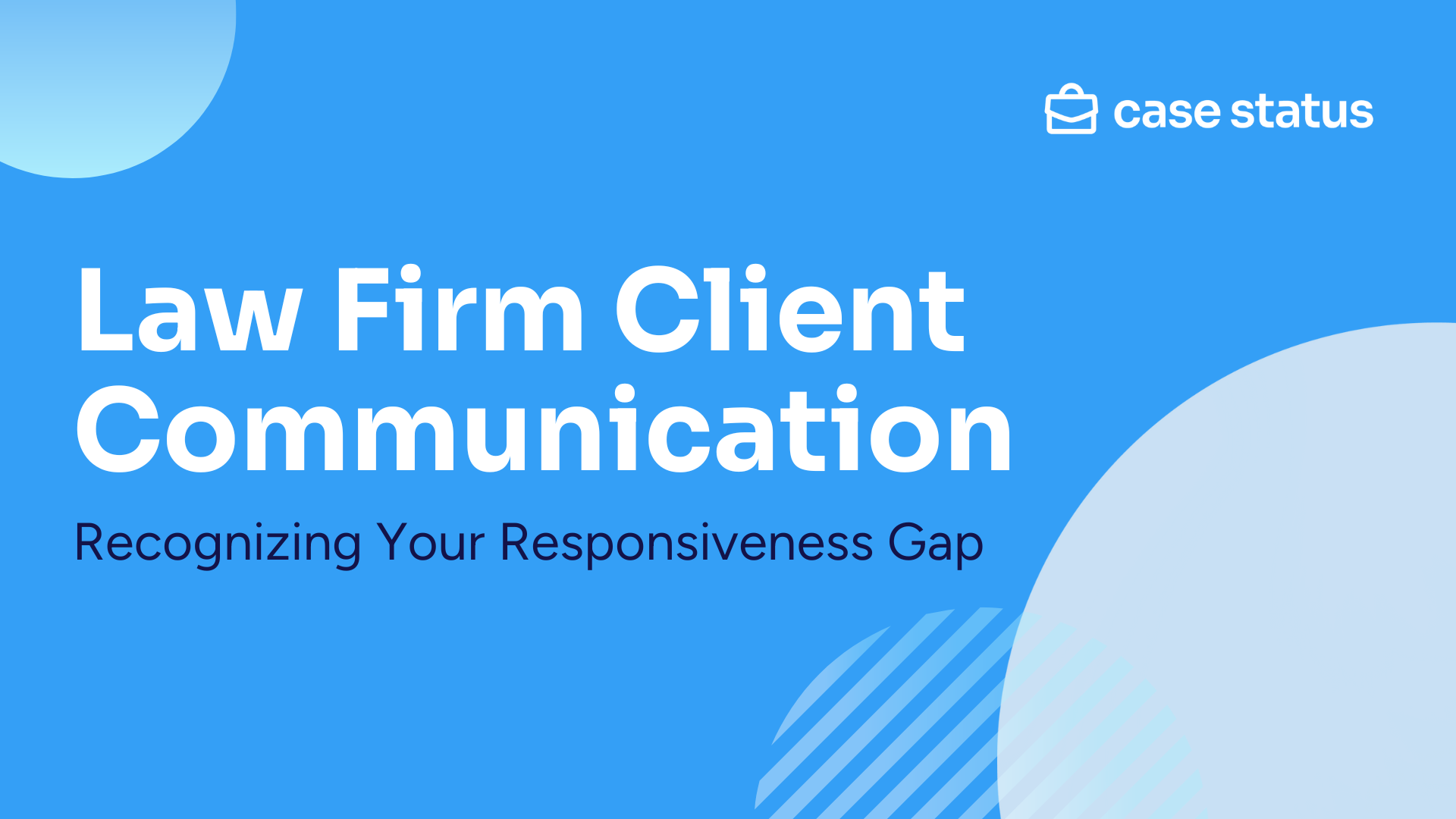
The global legal tech market is projected to surpass $56.7 billion by 2030. Throughout the industry, you can find startups dedicated to changing the legal landscape.
Historically, software has had a slow integration in the legal world, and many attorneys have not been able to adopt it due to issues with cost, complexity, and steep learning curves.
Luckily, times have changed, and modern legal technology, aka legal technology, companies are offering more variety than ever for both new and established firms alike.
What Is a Legal Technology Company?
Legal technology companies range from startups to small businesses to larger enterprises that offer software solutions to law firms. These can range from practice management to document management to accounting and billing to client portals. At Case Status, we are a client communication platform for law firms that simplify messaging and boost engagement.
A legal technology company makes legal tech software, which can range from a simple user interface to a complex customer relationship management (CRM) system. These software are designed to automate and simplify the most essential tasks in a law firm, which also tend to be the most time-consuming. Most software in the current age is delivered as software-as-a-service (SaaS) which means it is hosted on the cloud or internet. This greatly reduces the infrastructure and complexity a law firm needs to consider.
The goal of legal technology software is to make running a law firm easier. Although there can often be a learning curve, the return on investment is worth the initial effort it takes to learn the fundamentals of a software and onboard your staff.
What Does Legal Technology Do?
There are a wide range of applications for legal technology tools, such as:
- Automate Important Tasks: A law firm has dozens of routine responsibilities that can be handed off to a software and made easier. From client intake with custom forms to billing and payment processing, automation allows law firms to run more efficiently. Legal professionals also enjoy greater time to focus on complex work that utilizes their talent.
- Enhance Legal Research: With legal research software, you can expedite one of the most time-consuming aspects of building a case. In a matter of minutes, you can identify all relevant case and statutory laws, excerpts from legal encyclopedias, and more.
- Improve Case Management: Managing case matter no longer has to be a headache; the best software comes packaged with cloud-based storage solutions, allowing you to easily store, manage, and review documents from anywhere.
- Streamline Billing: With time tracking and billing software, as well as integrations with platforms you may already use, legal technology can make managing your business’s finances much easier.
- Improve Client Satisfaction: Through legal client portal software like Case Status, legal clients receive more personalized attention. These portals provide greater access to the firm and important information without increasing inbound calls or emails. Because they can find what they want to know faster and easier, clients are more satisfied with law firms that incorporate this type of technology.
Why Is Legal Technology Important?
In today’s fast-paced, tech-driven world, companies cannot afford to go without digital-first solutions. While law may be a long-established industry, it is not immune to becoming archaic in the wake of new innovations. Practices that leverage artificial intelligence and automation software will be able to provide faster results and greater service simply because they have tools that make their jobs easier.
What’s more, clients are becoming more selective about the types of firms they want to work with. They will have greater confidence in legal professionals that offer them personalized experiences. You can achieve this through personalized client intake forms, on-demand resources, client education tools, and more.
Law firms that use legal technology software are able to work more efficiently and, as a result, grow more sustainably. Rather than become overwhelmed by their scale, firms can simply adjust their software features to suit their current caseload.
Technology also reduces stress on staff members. With reduced work pressures, paralegals, legal secretaries, and lawyers are able to perform their jobs better and dedicate themselves to performing tasks that matter most.
Advanced legal software is creating new opportunities for firms as well. Whether it’s text messaging, virtual consultations, or completely online legal services, software will continue to make the legal sector more accessible.
What Type of Technology Do Lawyers Use?
Lawyers use all sorts of technology to streamline their practices, ranging from contract management to writing assistants and everything in between. Because the field is so diverse, lawyers can find software that matches their needs and scales according to client demands and business growth.
Here is an example of a legal tech stack:

For example, if you initially purchase a legal CRM, your basic plan may serve the primary purpose of keeping track of leads and guiding them through the conversion process. But as your business grows, you might expand your CRM plan to access more features that include case management software and software integrations.
The ability to merge various legal software together, such as Clio, RocketMatter, and MyCase, with legal software like Case Status, allow law firms to customize their tech stacks with ease.
From analytics and web design to client communication, legal research, billing, writing, and document storage, legal software companies offer a variety of tools to firms of all sizes and specialties.
Case Status is one of the best legal technology companies when it comes to client communication. We created our portal for clients because we know that attorneys who care about theirs were unsatisfied with the current offerings. Providing hands-on attention is difficult when you run a busy firm, but you never have to leave a client feeling unsupported with our software.
Thanks to real-time translation, firms can offer support in over 100 languages. The ability to message directly through the app and track case progress step-by-step eases anxiety and stress for clients facing any legal matter.
With the most robust legal client portal on the market, Case Status pairs with the leading CRMs, such as MyCase and Clio, to deliver unparalleled client communication that transforms the way law firms serve their communities.



